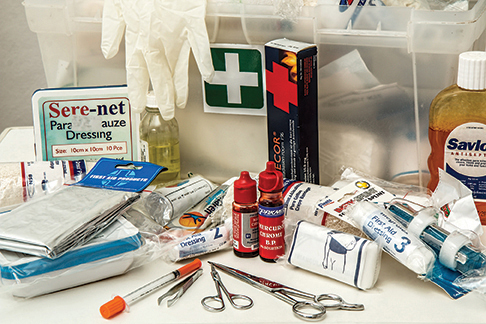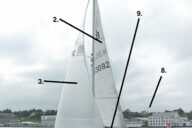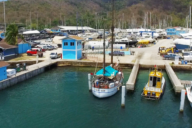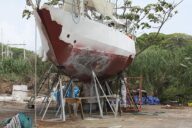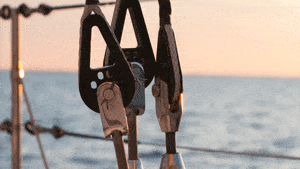If you’re attempting to address a medical emergency and you’re not prepared, you’re already too late
Six months before we were scheduled to take Moondance across the North Atlantic, we began to assign tasks and areas of responsibility to the people scheduled to be onboard. Those responsible for the engine maintenance and other mechanical equipment would have time to take classes in diesel mechanics, collect and review manuals and understand the day to day processes that would be required for the watermaker, engine, generator and other pieces of equipment. The person who was going to be responsible for sail repairs, would have time to build a proper offshore sail repair kit and learn how to best use the various sticky-backed materials, high-tensile lines, and needle and thread. If someone was severely burned, seasick for days or got a cut infected or blood poisoning while handling diesel fuel, it might be far more critical to have someone understand the bits and pieces stowed in the medical kit and how to properly close a wound or otherwise help the afflicted. It would certainly NOT be the time to start fumbling for solutions.
Racing around the world in the 1998-’99 Around Alone Race, single handed Russian sailor Viktor Yazykov had a potentially life-threatening situation facing him. The abscess on his elbow required draining. Even to a former Russian paratrooper, it was painful, and a resulting infection could kill him. Lancing the abscess would be excruciating. He drank some vodka to dull the pain. Perhaps that wouldn’t be enough, he thought. He took some aspirin. Then he proceeded to lance that abscess. It wasn’t a good situation, as he sat on the cabin sole watching his arm bleed continuously. With the blood beginning to form a lake in the bottom of the little boat, he passed out, now facing the prospect of potentially bleeding to death. Read more.

